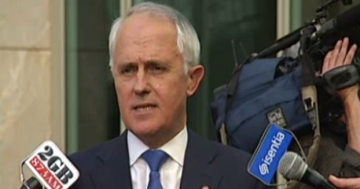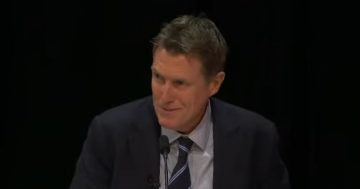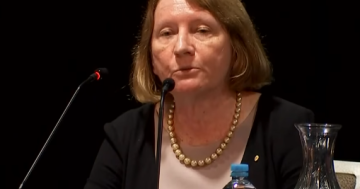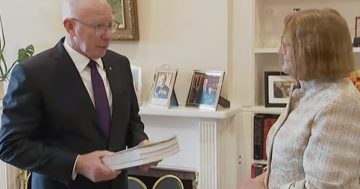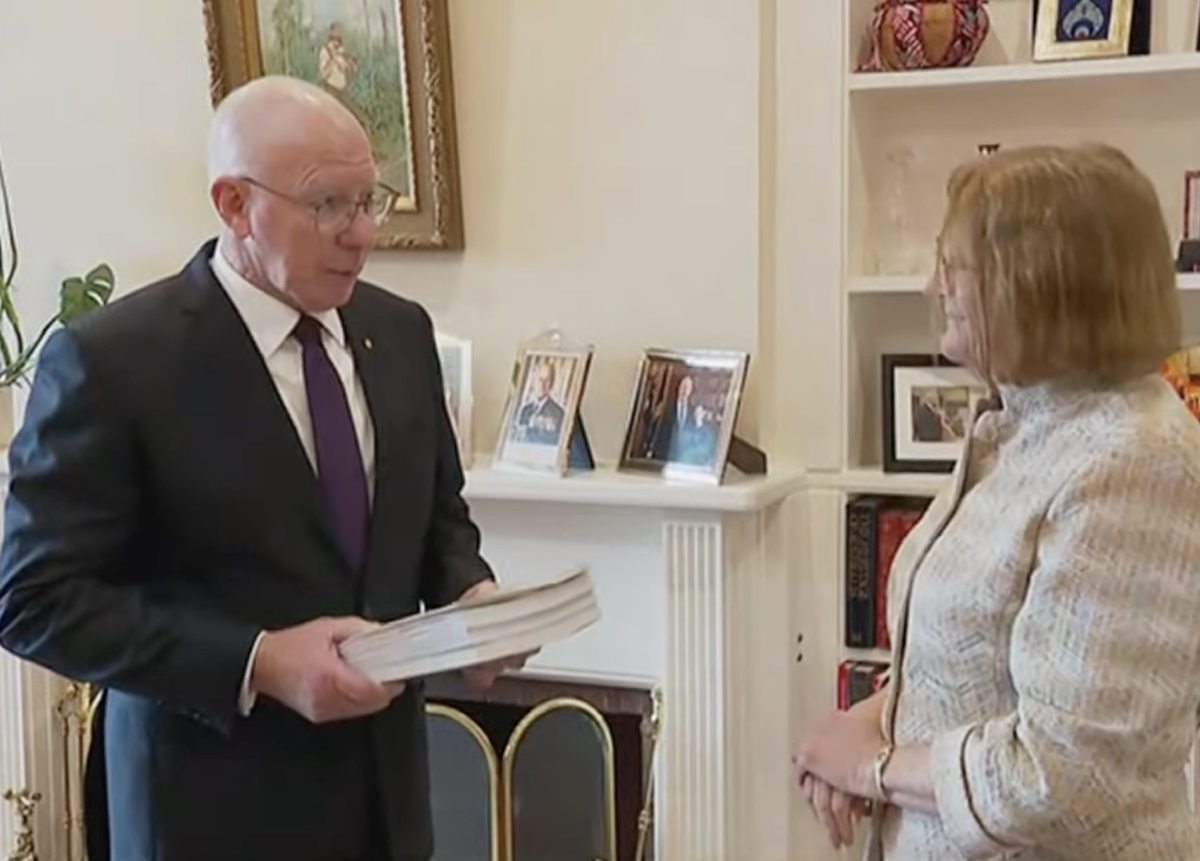
Governor-General David Hurley receives the Robodebt Royal Commission report from Commissioner Catherine Holmes. Photo: Screenshot.
Royal Commissioner Catherine Holmes has recommended that civil action and criminal charges be pursued against key players in implementing and rolling out the illegal Robodebt scheme.
But Australian taxpayers will have to wait to learn those people’s names.
The Commissioner has this morning delivered to Governor-General David Hurley her inquiry’s final report into the scheme. It was subsequently tabled in the Federal Parliament.
“Robodebt was a crude and cruel mechanism, neither fair nor legal, and it made many people feel like criminals,” Commissioner Holmes says in her report.
“In essence, people were traumatised on the off-chance they might owe money.
“It was a costly failure of public administration, in both human and economic terms.”
The report has three volumes totalling more than 990 pages and makes 57 recommendations.
In an additional sealed section, untabled and separate from the main bound report, the commission recommends referrals of individuals for prosecution.
Those names are yet to be released so as not to prejudice decisions over legal action.
It is believed the architects of the scheme and those who ruthlessly rolled it out in the face of strong advice the scheme was illegal are among the names the commission suggests should answer criminal charges.
It is also expected several currently serving senior public servants will be stood down.
Prime Minister Anthony Albanese thanked the Commissioner and her team, as well as the victims who appeared before the inquiry.
“We have arrived at the truth because of the courage of some of the most vulnerable Australians,” he said.
Mr Albanese added that their testimony stood “in stark contrast” to those in power who tried to shift blame and bury the truth over the scheme.
Since its establishment in August last year, the Royal Commission issued 200 notices to give information and 180 notices to produce documents.
In response, the Commonwealth produced more than 950,000 documents.
The commission received 1099 submissions and held 303 hours of public hearings over 46 days (over nine weeks), involving 115 witnesses and more than 10,000 tendered exhibits.
Video livestreams of its hearings attracted 686,161 total viewers.
Two former Liberal prime ministers – Malcolm Turnbull and Scott Morrison – gave evidence to the Royal Commission, as did former Coalition ministers Christian Porter, Alan Tudge, Stuart Robert, Marise Payne and Michael Keenan.
Taxpayers will carry the cost of legal expenses, totalling about $2.5 million, for these former ministers to be represented at the commission.
The Royal Commission’s report is scathing of the evidence given by Mr Morrison, Mr Tudge and Mr Robert.
Numerous senior public servants also appeared before the commission, including former secretary Kathryn Campbell who was often described as the face of Robodebt.
The automated debt recovery scheme was piloted in 2015 and fully rolled out between 2016 and 2019 by the Department of Human Services and its successor, Services Australia, with more than 470,000 false debts issued.
It caused extensive grief and trauma, with some recipients reported to have taken their own lives over the debts.
It was officially scrapped in 2020, with the promise of paid debts being refunded in full.
It cost the Commonwealth $1.8 billion in settlement after the Federal Court ruled it a “massive failure in public administration”.
Following Labor’s federal election win last year, Prime Minister Anthony Albanese wiped any debts still under review and established the Royal Commission.
Government Services Minister Bill Shorten said the Royal Commission had made clear the extent of the illegality of the scheme.
“Today is about the victims of Robodbet,” he said.
“Today is about the frontline staff of Services Australia who were forced to implement unconscionable decisions … This is a lesson for the public service of Australia.”
Opposition Leader Peter Dutton said the timing of the report’s release was political.
“There’s no question about why it is being dropped today because we are a week out from the by-election in Fadden,” Mr Dutton said.
“The government is trying to squeeze every political drop out of it.
“If there are breakdowns in the system, which clearly there were, then we will look at the recommendations, but don’t lose sight of the fact the government has politicised this big time and they are dropping it out now as a way to try and smear our candidate and our chances in Fadden.”












